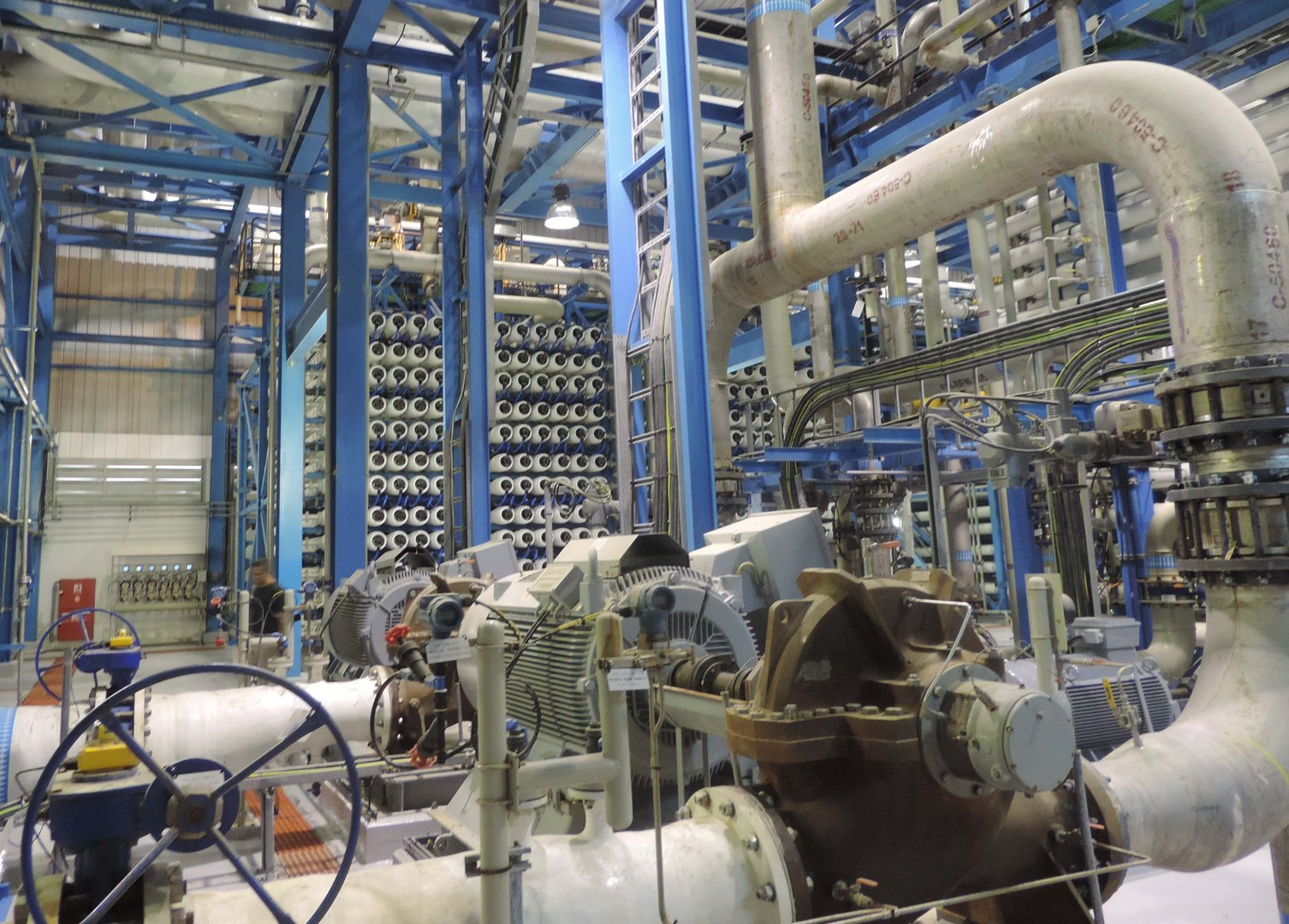Construction of two new desalination plants in Limassol and Famagusta was under review on Tuesday spurred on by the prevailing drought conditions and water shortage fears.
The state is under commitment for full, uninterrupted provision of household water and around 75 per cent of this is usually provided by five large desalination plants, inDhekelia, Larnaca, Vasilikos, Episkopi and Paphos, and 24 smaller units, the Water Development Department’s senior engineer Yianna Economidou told the Cyprus Mail.
The rest of the island’s drinking water comes from boreholes and reservoirs, which are in a dire state this summer, having fallen below 50 per cent of their capacity overall.
The two proposed desalination plants both have hurdles to overcome before they can materialise, one in terms of land ownership and the other in terms of zoning. The location which had been considered for the first plant in Limassol’s industrial zone in Moni is mired in ownership complications, with the net result being that an alternative site is now being sought.
The second proposed site, inFamagusta, faces the challenge that all areas suitable from a technical point-of-view, from Pyla cape to Kappari, are either protected or bathing beaches.
The output of the existing desalination units is 67 million cubic metres of water, while annual demand for water supply can reach up to 106 million cubic metres, which means the current units, at times, supply only 63 per cent.
In view of these setbacks an upgrade of the Dhekelia desalination plant to whose contract is soon to expire, is being considered. The cost for a new desalination unit is around €80 million.
Permanent secretary of the agriculture ministry Andreas Gregoriou has convened a meeting with the Water Development Department (WDD) to discuss obstacles in the plans for new desalination units, as well as other plans to solve the water crisis.
Long term proposals are also being discussed and in the event that the sparse rainfall continues into the winter, the creation of two mobile desalination units is being considered.
Farmers facing a difficult summer season protested in Paphos on Monday over the fact that their irrigation water supply was cut by a third, saying that if the situation continues they will be forced to abandon their crops. A meeting of the minister of agriculture with agricultural organisations has been fixed for June 7 to discuss possible solutions.
The ministry is said to be working on a series of measures, banking on solving the problem in the long run through embarking on infrastructure projects to the tune of €1.17 billion. These form part of the national investment plan, drawn up in February of 2024, which takes into its scope the integrated planning of irrigation and water supply.
Cyprus Mail has contacted the WDD and the ministry of agriculture for further information.







Click here to change your cookie preferences